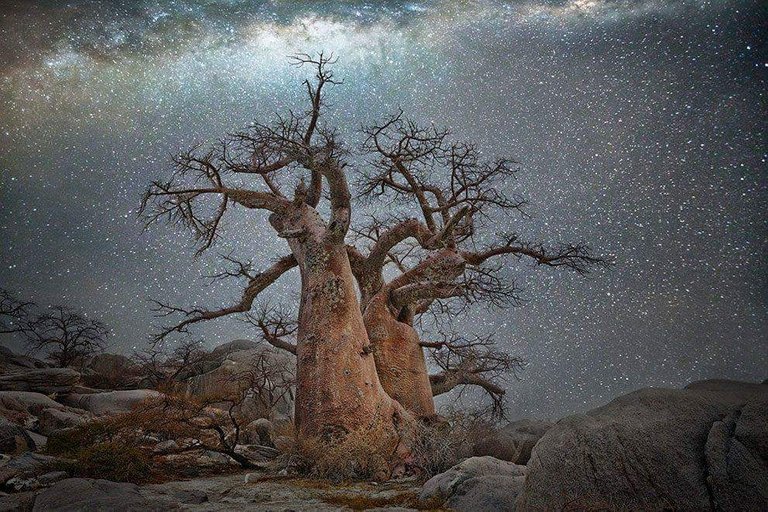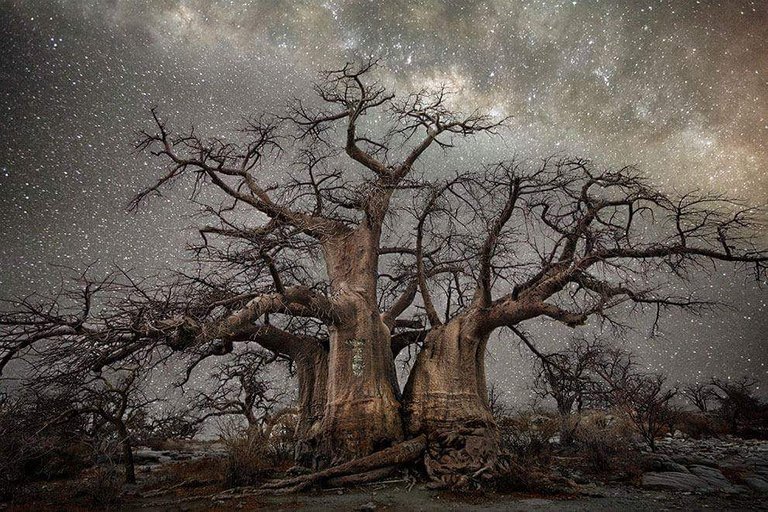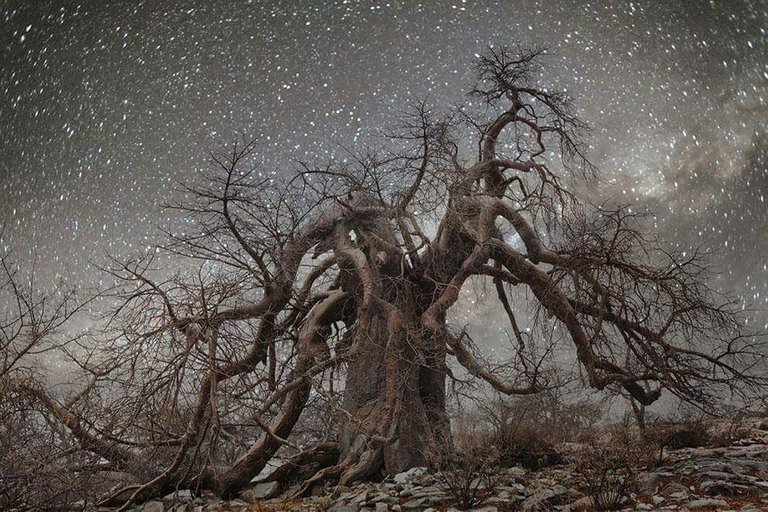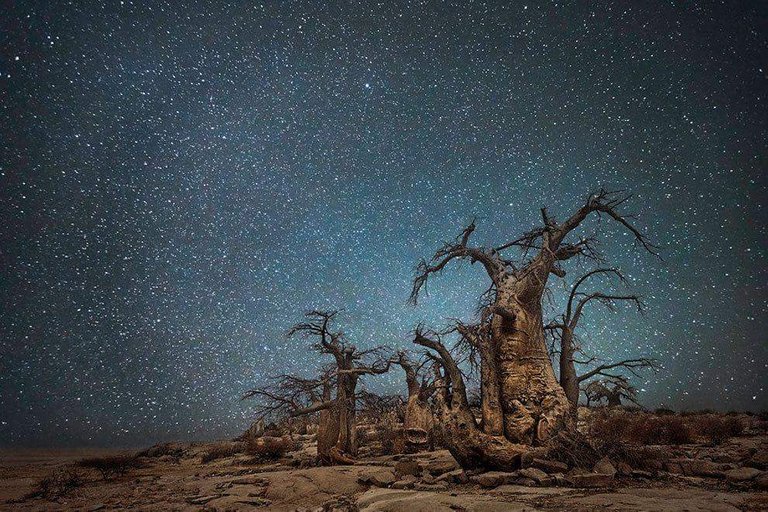
A baobab is any of nine species of deciduous tree in the genus Adansonia, found in arid regions of Madagascar, mainland Africa, Arabia, and Australia. Of the nine species, six are native to Madagascar, two are native to mainland Africa and the Arabian Peninsula, and one is native to Australia. It was introduced in ancient times to south Asia and during the colonial era to the Caribbean. The ninth species was described in 2012, and is found in upland populations of southern and eastern Africa. The African and Australian baobabs are almost identical despite having separated more than 100 million years ago, probably by oceanic dispersal.



Baobabs reach heights of 5 to 30 m (16 to 98 ft) and have trunk diameters of 7 to 11 m (23 to 36 ft). The Glencoe baobab, a specimen of Adansonia digitata in Limpopo Province, South Africa, was considered to be the largest living individual, with a maximum circumference of 47 m (154 ft) and a diameter of about 15.9 m (52 ft). Adansonia trees produce faint growth rings, probably annually, but they are not reliable for aging specimens, because they are difficult to count and may fade away as the wood ages. A specimen of Adansonia digitata known as Grootboom was dated and found to be at least 1275 years old, making it one of the oldest known angiosperm trees.
good information